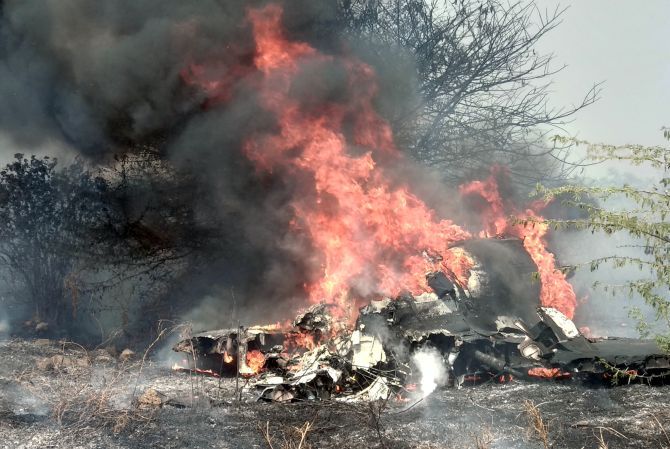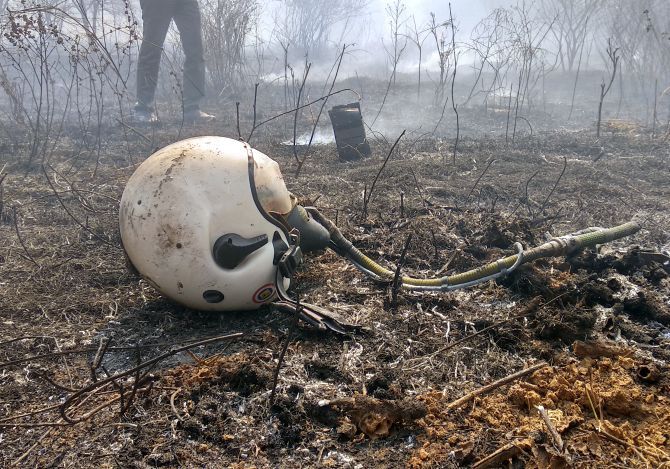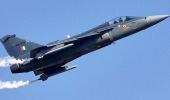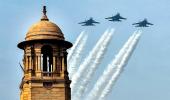'Having done many an 'acceptance flight' over the years at Ojhar HAL and seen the facilities at Bangalore, one understands the financial year end frenzy at these establishments and the slipshod slippages in timeframes, quality of overhaul, servicing and quality control across the board, for aircraft and equipment alike,' says Group Captain Murli Menon (retd).

A conversation with the late Air Chief Marshal Mushraf Ali Mir of the Pakistan air force sometime around 2002 comes to mind wherein the neighbour's air chief was praising HAL's LCA project.
Being in the state that his country was in, perhaps it looked all rosy for him! One did not choose at that time to correct his impression for obvious reasons.
The sad Mirage 2000 trainer crash on Friday, February 1, and the consequent fatalities of two invaluable test pilots need to make our policy makers sit up and think.
From the early memories of my IAF days, one knows about the below par performance standards maintained by HAL, from HF24 to Gnats to MiG 21s to MiG 23/27s, MiG 29s, the Sukhois and now even the Mirages.
And to think that the recent political furore over the Rafale deal talked of not giving HAL its due! Dassault refused to have any truck with this inefficient factory and for good reason.
Having done many an 'acceptance flight' over the years at Ojhar HAL and seen the facilities at Bangalore, one understands the financial year end frenzy at these establishments and the slipshod slippages in timeframes, quality of overhaul, servicing and quality control across the board, for aircraft and equipment alike.
Lack of competition within the country and non participation of the civilian sector have virtually sounded the death knell for this behemoth white elephant PSU.
Whilst most such enterprises in the world such as the Turkish aircraft industry and the Israel aircraft industry have progressed by leaps and bounds in their capabilities, especially over the recent decades, HAL got bogged down by inferior Soviet era technology and its trade union culture.
One was often shocked to see how HAL provided heavily subsidised food in its array of cafeteria across the country, all for such pedestrian output?! And with such unproven capabilities it is no surprise that HAL is found missing from most prominent air shows such as the Farnborough Air Show.
And to think that HAL is going to be tasked with more and more new platforms such as the Avro replacement CN 235, advanced attack helicopters such as the American Apaches or perhaps even the Rafale at some stage.
Transfer of technology normally entails valuable transfer of expertise, experience and innovative quality control norms.
HAL has definitely not learnt much from its earlier debacles with the MiG and Sukhoi series. Book adjustments from captive clients such as the IAF, the Indian Navy and the Indian Army have kept their coffers strong, regardless of recent motivated media outbursts about the poor state of its order books.

Leadership has been a worry for sure. For a venture with such a precarious national security charter we need to see a dynamic leader at the top.
Past attempts at bringing in IAF functionaries (Air Chief Marshals P C Lal, S K Mehra, L M Katre and Air Marshal M S D Wollen come to mind) have been systematically scuttled later on by the techno-bureaucratic war machine, leaving promotees and political appointees as CEOs.
The government needs to consider bringing in serving IAF functionaries at higher management levels to enhance accountability.
Also, a combination of public private partnership and outsourcing to renowned foreign players (such as the Israel Aerospace Industries, Lockheed or British Aerospace) need to be considered and meritocracy brought in top to bottom to ensure value for money spent.
Reorganisation of this huge PSU needs to be undertaken on priority, ensuring a seamless transition to higher outputs and state of the art capability.
Ad interim IAF base repair depots need to be upgraded to take on major servicing and upgrades of avionics and weapon systems.
Stringent human resource management of ex-IAF and direct entry candidates is called for. Performance-based motivational avenues and promotions need to be incorporated.
A high level study on the lines of the Kargil Review Committee should be instituted forthwith to identify and remedy problem areas.
The malaise that afflicts HAL would be applicable to many an ordnance factory too, some of which have recently had unexplained fire accidents.
HAL's is a sad story of incompetence and non accountability.
These defence PSUs need to be treated at par with the defence forces, their rules of engagement and company laws rehashed to cope with those amenable to a war making organisation lest we find ourselves like a toothless tiger in today's competitive strategic environment.










